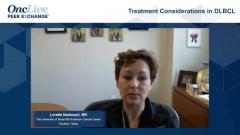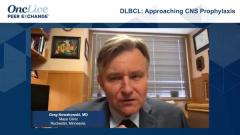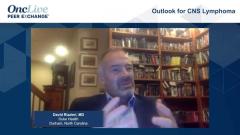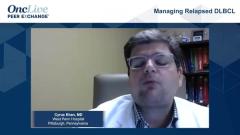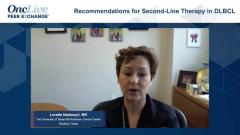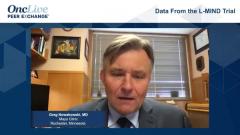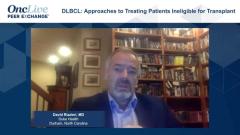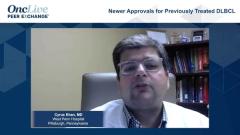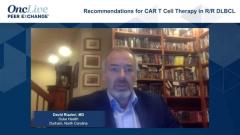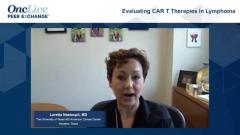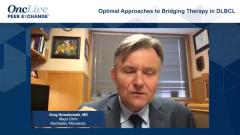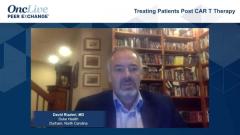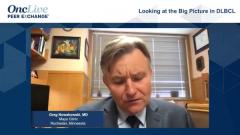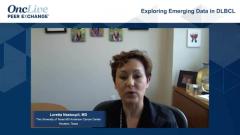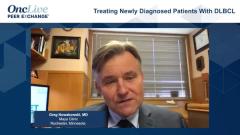
Data From the L-MIND Trial
Greg Nowakowski, MD [Mayo Clinic, Rochester, Minnesota], reviews the data from the L-MIND trial of tafasitamab and lenalidomide for transplant-ineligible patients with R/R DLBCL (relapsed/refractory diffuse large B-cell lymphoma).
Episodes in this series

John Leonard, MD [Weill Cornell Medicine, New York City, New York]: We have two non-chemotherapy approaches that have had relatively recent data. I'm going to ask you, Greg, first about the tafasitamab and lenalidomide combination that you alluded to earlier. Those seem to be two of the regimens that we have new agents for now. Relatively novel agents and pretty good data in this transplant and eligible group of patients. Greg, where do you see taf-len (abbreviation for tafasitamab plus lenalidomide) fitting in?
Greg Nowakowski, MD: This is building on the L-MIND study, which combined the naked anti-CD19 antibody which the polatuzumab with lenalidomide. There is other clinical synergy between those two agents. There was a phase 2 study L-MIND did in this space and patients were not eligible for transplant, either because they didn't meet the criteria for the transplant for status organ function or they were just not responding well enough to salvage regimens. The Initial report and colleague from the L-MIND study reports the response rate (RR) of other responses is about 60%. The complete response rate was around 40%—so very high. And the duration of response for this was about 12 months at that time. Everybody was very enthusiastic and excited about this data. This actually led to accelerated approval of the combination of tafasitamab with lenalidomide by FDA. As physicians and providers, we always want to see how durable this benefit is, and there is additional follow-up on those studies. This year at ASCO (American Society of Clinical Oncology annual meeting), we saw extended follow-up on the L-MIND study. With now over two years of follow-up on the last patient completing the outlet therapy, the overall response rate (ORR) and CR (complete response) rate are high and stay the same. But in the study, we also see that the durability of response is there. The median overall response rate is 43 months. It's quite long. Progression-free survival (PFS) for older patients was 12 months and median overall survival for those patients is 33 months—that’s really a very sustained duration of the benefit of therapy with taf-len. They've also done a number of analyses looking at the patients treated in second-line therapy versus line, as Loretta Loretta Nastoupil, MD, The University of Texas MD Anderson Cancer Center, Houston, Texas alluded to. It appears that patients treated in second-line early have a better duration of response and progression-free survival. Still, it is quite effective therapy in patients in a third-line and beyond. If you look at the duration of response based on the response depth, it's also interesting. Obviously, the patients with CR tend to benefit the most, but approximately a third of the patients with PR (Partial response) are still having durable responses, so this combination is one of targeting C19. There are several agents, including CAR-T (chimeric antigen receptor T-cells) targeting C19, but really, this combo, building on the synergy of IMiDs (immunomodulatory imide drugs) with both antibodies, is providing a new and very attractive option for treatment of patients with relapsed and refractory diffuse large B-cell lymphoma, who would not be candidates for stem cell transplant.
TRANSRIPT EDITED FOR CLARITY


